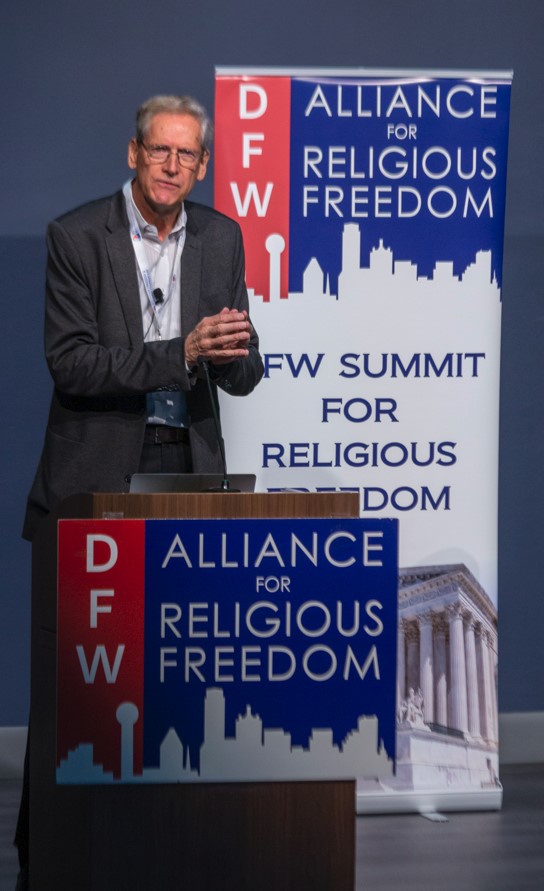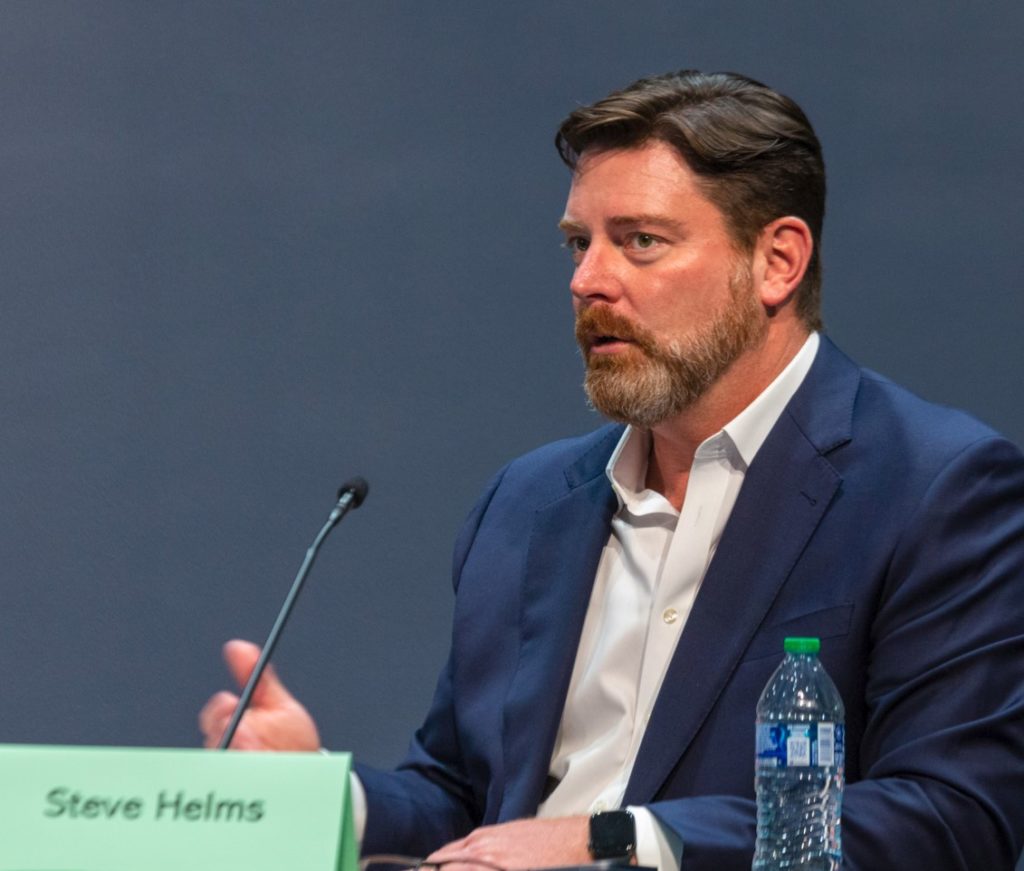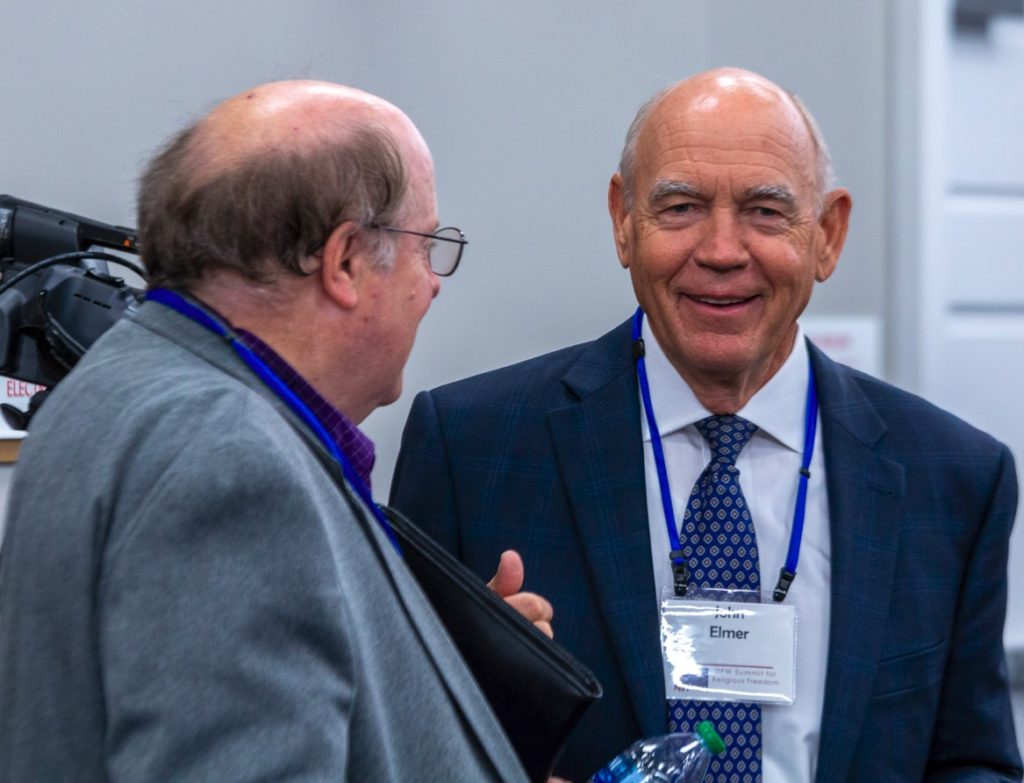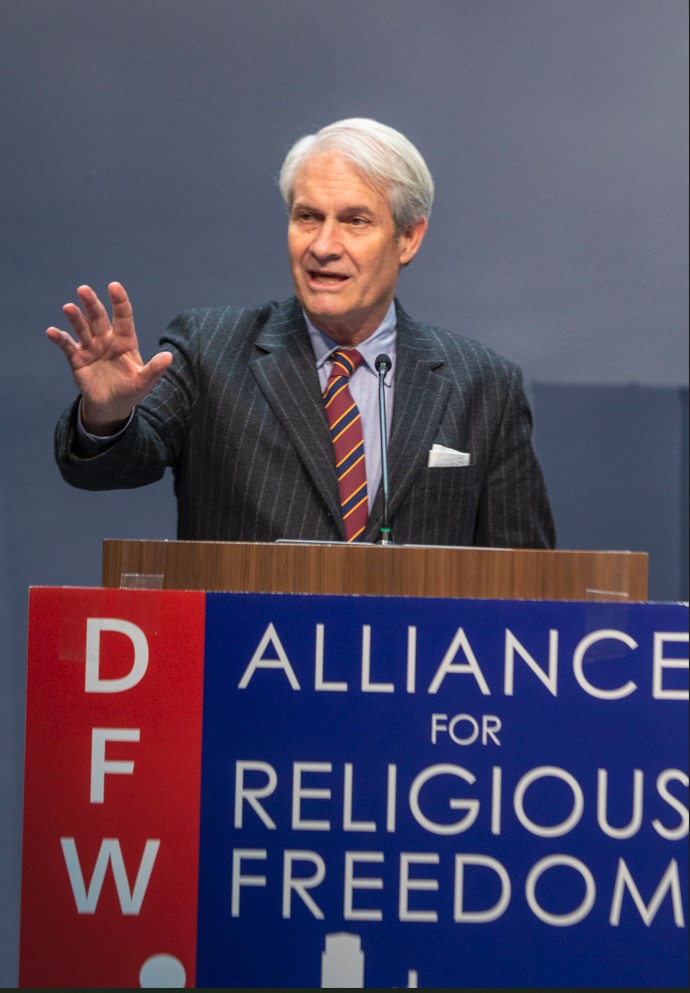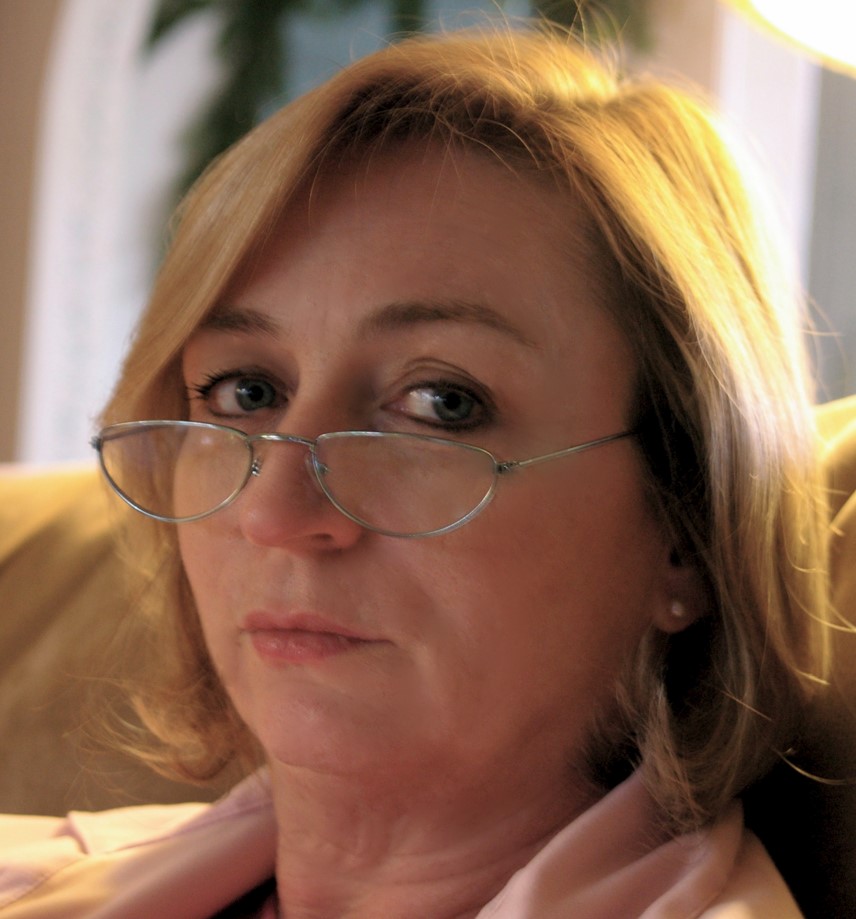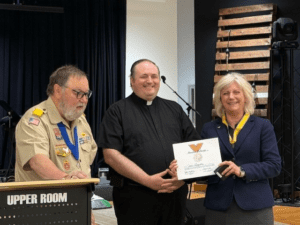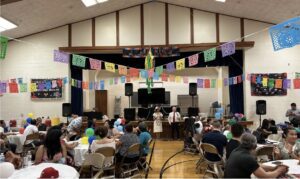2022 DFW Summit for Religious Freedom Charts Course for Unity
Photos by Joe Carbone
The 5th Annual DFW Summit for Religious Freedom, held October 27, 2022, at Southern Methodist University, brought together speakers and panelists from diverse backgrounds to discuss topics relevant to citizens across the country. Founded in 2017 by members of The Church of Jesus Christ of Latter-day Saints and other community partners such as Dr. Robert Hunt of the Perkins School of Theology, the Summit continues to offer remarkable insights into this critical area of communication.
One focus of the 2022 agenda was religion in the workplace. Kent Johnson, senior corporate advisor at the Religious Freedom & Business Foundation, spent 40 years as legal counsel at Texas Instruments. Twenty-two years ago, he saw that religious people needed “a voice at the table” and helped establish employee resource groups for them. “Freedom of religion just in your head isn’t freedom at all,” Johnson explained. Workers often feel they must leave an essential part of themselves at the door because their religious beliefs and practices aren’t welcome. Workers don’t like to feel “weird,” Johnson added.
The Foundation recognizes companies that implement programs to support employees. Religious Equity, Diversity, and Inclusion awards (REDI) are keenly sought after.
The winners are not little-known businesses. The 2022 first place award went to American Airlines. The top 10 include such notables as Dell, Google, Target, American Express, and Texas Instruments. In 2021, Intel was first, and the list included Apple and Netflix. This short video features Googlers describing their involvement with the five faith-based Inter Belief Network (IBN) chapters the company supports: Buddhist, Christian, Muslim, Interfaith, and Jewish. Words like education, understanding, enrichment, and respect stand out.
Value to employees is easily observable, but what about these companies? Steve Helms, an emerging technologies specialist at Dell, sees the importance as pragmatic and not just a “feel good” response. He cited the five pillars of different faith groups at Dell as a force to bring the company together in a common cause, regardless of religion or lack of it. For example, Dell has offered support to A21, a non-profit organization with the mission to end human trafficking and abolish slavery in the 21st century.
Aiman Salih co-chairs the Muslim Employee Network at TI. When he came to the company, he was pleased to find beautifully organized, thoughtful Serenity Rooms where he could pray during the day. He saw that it is possible to be a professional and a person of faith.
One attendee, John Elmer, highlighted the impact of implementing these groups. His construction company employs many LDS workers, but the public may perceive, inaccurately, that the entire company roster is LDS. In fact, the president and CEO happens to be Catholic.
A second focus of the conference involved religion in the public square. In 2015, Coach Joseph Kennedy was fired when he refused to stop praying at the 50-yard line after games. The Supreme Court found that this violated his right to express his religion and did not violate the prohibition of establishing a religion. That decision has implications that will be felt in other venues.
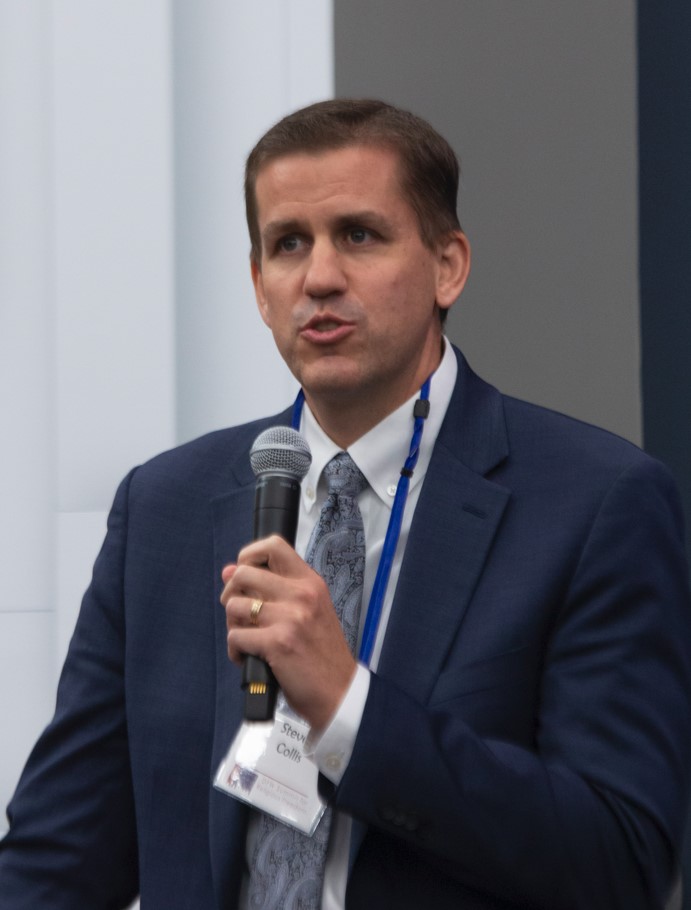
Steven T. Collis, faculty director of the First Amendment Center at the University of Texas School of Law, noted that in Quebec, the provincial government has ruled that public officials cannot display any religious symbols at work, including hijabs or even the smallest cross. This policy is called laicité, referring to the complete separation of a lay or non-religious state and religious practice reserved for private life. In the United States, Collis observed that the courts have continued to refine and clarify these protections.
The LGBT community presented a panel discussion on inclusion. One observer said that more important perhaps than their topic was the relationship between members of the panel. Steve Sandberg serves as general counsel to BYU. Shannon Minter is legal director for the National Center for Lesbian Rights. Yet, the two share admiration, respect, and affection because of their commitment to engaging in this dialogue, person to person.
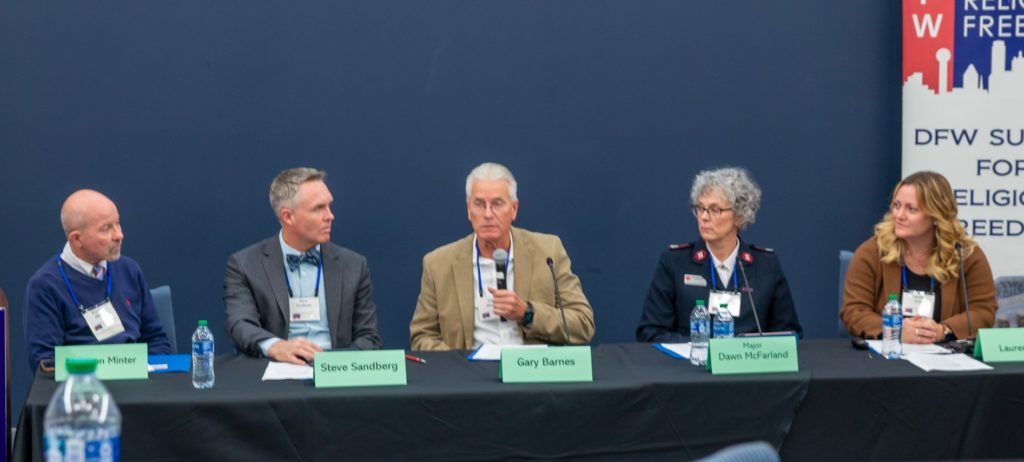
Finally, and most importantly, what is to be done in a world with so much persecution and dissension? Steve Brownback, former governor of Kansas and President Trump’s ambassador-at-large for religious freedom, reminded the luncheon assembly that most genocides in the last 100 years were of religious minorities. We know about the Holocaust, but he reminded the group of the Uighurs in China, the Buddhists in Cambodia, the Rohingya in Myanmar, and the Yazidis in Syria. He suggested that the persecution of Christians is also worse now than ever. Even in the United States, he recalled the persecution of the Latter-day Saints.
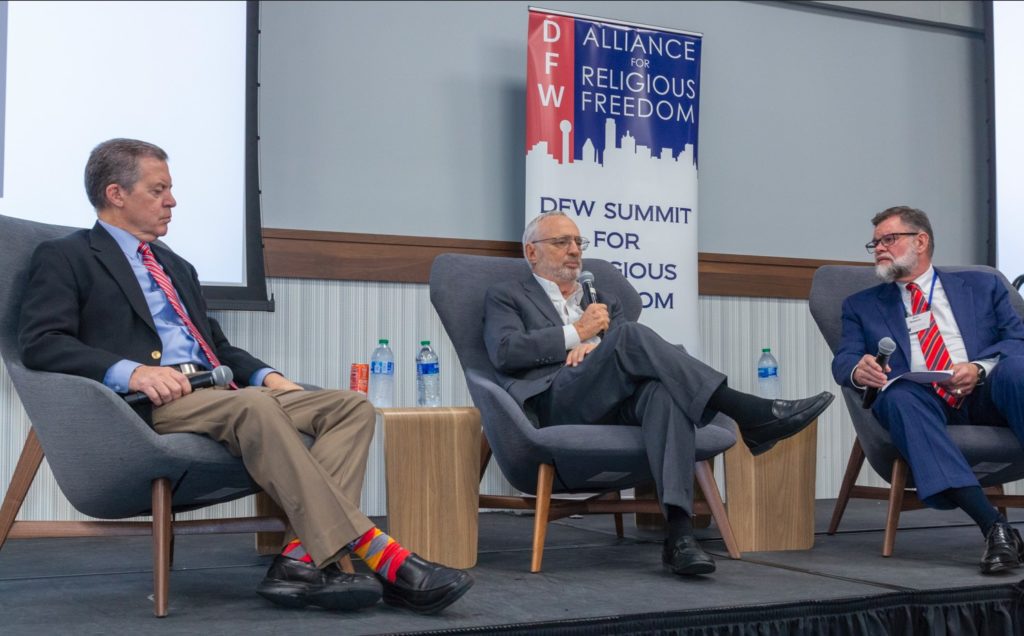
Rabbi David Saperstein, President Obama’s religion ambassador, made perhaps the most striking comment of the day: “Religion is the only force strong enough to limit and stand up to governments because of the loyalty it inspires.” He added his “so what?” challenge that we are responsible for what happens and called on the audience to do something in defense of religious freedom.
Judge William B. Griffith, formerly of the U.S. Court of Appeals for the D.C. Circuit, summarized the theme of “lowering the temperature” and added specific ways to implement Rabbi Saperstein’s call to action. He suggested that our division into factions has been a threat to the Constitution from the beginning and quoted George Washington’s letter of 1787 in which he urged “a spirit of amity and mutual deference.” He also quoted Abraham Lincoln’s second inaugural address which contains the famous admonition of maintaining “malice toward none, with charity for all; with firmness in the right, as God gives us to see the right, let us strive on to finish the work we are in.”
Judge Griffith added ways to accomplish these goals. Quoting LDS leader Dieter F. Uchtdorf’s story of men trying and failing at first to move a grand piano, he said, “Lift where you stand.” Standing near each other and using the power they had, they could accomplish a task that seemed impossible.
He then quoted Dallin H. Oaks, another former judge and current LDS leader, who suggested we need to “moderate and unify” on contested issues. Judge Griffith believes that by listening to others, socializing with them, and compromising, remarkable things can happen just as they did at the Constitutional Convention in 1787.
In his area of the country, Loudoun County, Virginia, the school district worked to implement policies for LGBTQ equity and protection because of a Commonwealth mandate, creating conflict between the LGBTQ community and parents with religious rights concerns. Melaney Tagg worked through the Community Levee Organization to implement the principles Judge Griffith described. Small groups labored together to build bridges of trust and cooperation. They reached agreement on a set of proposals, with eight of the ten accepted unanimously. In short, the process worked. Her explanation can be read here.
The messages of the summit may be the answer to many of the ills plaguing the nation, according to participants. Ambassador Brownback reported organizations like the DFW Alliance are forming in other states and communities. Knowing there is a different way can lead to more fruitful, productive outcomes and lends hope in a time when many voices say there is none.
Links to sessions of the summits, current and past, are available at the DFW Alliance for Religious Freedom website here.
























Mary Ann Taylor is communications director for the Dallas Texas Stake of The Church of Jesus Christ of Latter-day Saints living in Duncanville.

